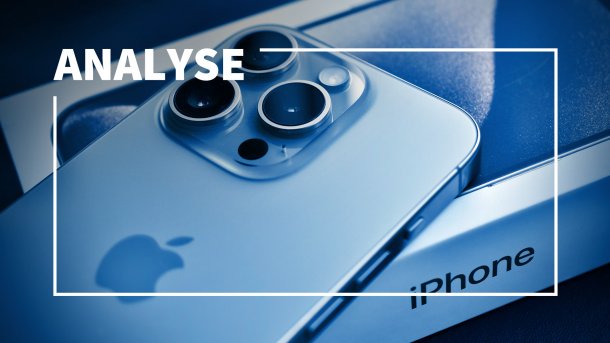Android sends its regards: what opportunities an inconvenient iPhone brings
Everything used to be very simple on the iPhone - that's over now. But you can still enjoy being spoiled for choice with alternative app stores, says Leo Becker.

(Bild: mac & i / tre)
"There's an app for everything": this Apple advertising slogan from the early days of the iPhone was a self-fulfilling prophecy, even if it was only half true. There has long been an iOS app for (almost) everything, but only if Apple lets it into the App Store. For over 15 years, the company persistently and often unfoundedly blocked entire app categories, including open game emulators. Although there were often ways to get apps - at least free ones - past Apple onto the iPhone, this was never suitable for everyday use or for the masses.
The "Delta" app currently underlines just how much pent-up demand there is for a beautifully implemented Nintendo emulator. Immediately after its release on Wednesday evening, it shot to the top of the US app store charts and has remained there consistently so far. In Europe, however, Delta is not available in the Apple App Store, but only in the first alternative app store "AltStore PAL". This is operated by the Delta developer himself, who has been looking for ways to offer his popular app to a wider iPhone audience for years.
Apps no longer automatically in the App Store
Delta is also a foretaste of the major app fragmentation that iPhone users in Europe now have to prepare for - and which Apple warned about in vain in order to mitigate the new rules of the Digital Markets Act. The days of all iOS apps simply waiting to be downloaded from the App Store are numbered.
Why Delta is not also available in the App Store in Germany and other EU countries can only be answered by the developer. Perhaps they simply want to retain control over the distribution of their own app - something that has been a matter of course on desktop operating systems for decades - and earn something in the process: Access to the "AltStore" requires a subscription (at 1.79 euros per year, a very reasonable price), which should at least put some money in the provider's coffers, even if Apple also collects for every installation of the alternative app marketplace.
For iPhone users in the EU, it will now be much more inconvenient: in future, they will first have to find out where an app is available and how it can then be installed on the iPhone. Apple has not made the "sideloading" of apps outside the App Store particularly simple; users have to master a sequence of unclear steps before apps from other sources can be installed. Of course, Android users can only smile about this and iOS is still a long way from things like alternative launchers.
Fresh app wind for iOS
In any case, the new freedom promises tangible benefits. The threat of competition from other app stores has already prompted Apple to remove anachronistic App Store rules - at least those that don't cause the company any particular pain. After all, Delta was only allowed into the store in the first place because the ban on such emulators was suddenly lifted. Apple also seems to realize what an amazing draw a Nintendo emulator can be.
Now it remains to be seen which other apps that are not wanted by Apple have enough clout to persuade users to install alternative app marketplaces or to download them directly from the web. As a platform, iOS and the iPhone have become more exciting overnight than they have been for many years, things like virtualizers and developer tools suddenly seem tangible - and the first clipboard manager is already available in the AltStore. With a slight modification, Apple's old advertising slogan works again: There's an app store for everything.
Empfohlener redaktioneller Inhalt
Mit Ihrer Zustimmmung wird hier ein externer Preisvergleich (heise Preisvergleich) geladen.
Ich bin damit einverstanden, dass mir externe Inhalte angezeigt werden. Damit können personenbezogene Daten an Drittplattformen (heise Preisvergleich) übermittelt werden. Mehr dazu in unserer Datenschutzerklärung.
(lbe)